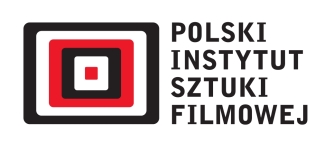Kino irlandzkie w XXI wieku
Díóg O’Connell
kwartalnik.filmowy@ispan.plInstitute of Art, Design and Technology w Dún Laoghaire (Irlandia)
Abstrakt
Autorka, przyglądając się kinu irlandzkiemu XXI w., patrzy z perspektywy zmian, jakie dokonały się w społeczeństwie Irlandii w ostatnich 50 latach, kiedy to kraj ten przeszedł drogę od tradycji do nowoczesności. Choć autorka skupia się na kinie najnowszym, a więc zrealizowanym po epoce boomu gospodarczego, „celtyckiego tygrysa”, przedstawia też zarys wcześniejszych etapów w historii tej kinematografii, ściśle związanych z przemianami społeczno-ekonomiczno-politycznymi. Tak więc w połowie lat 90. film irlandzki skupiał się na tzw. wielkiej trójcy tematów: Irlandii wiejskiej, Irlandii Północnej i Irlandii katolickiej. Po 1998 r. nastąpił zwrot – kino irlandzkie zdominowały współczesne filmy gatunkowe oraz produkcje przedstawiające Irlandię jako kraj wielkomiejskiego szyku. Filmy, które powstały już po epoce „celtyckiego tygrysa”, odrzuciły jednak tę poetykę, wracając do starych tematów, ale traktując je w nowy, przede wszystkim pod względem narracyjnym, sposób. Te nowe narracje miały przyczynić się do rozbicia mitu cudu gospodarczego i przedstawić alternatywne, peryferyjne, często prowokacyjne doświadczenie tego czasu.
Słowa kluczowe:
kino irlandzkie, celtycki tygrys, kino współczesneBibliografia
Asava, Zélie. The Black Irish Onscreen: Representing Black and Mixed-Race Irish Identities on Film and TV. Peter Lang, 2013.
DOI: https://doi.org/10.3726/978-3-0353-0507-4
Google Scholar
Barton, Ruth. Irish National Cinema, Routledge 2004.
DOI: https://doi.org/10.4324/9780203642344
Google Scholar
Ging, Debbie. Men and Masculinities in Irish Cinema. London: Palgrave Macmillan, 2013
DOI: https://doi.org/10.1057/9781137291936
Google Scholar
Hill, John. Cinema and Northern Ireland: Film, Culture and Politcs, BFI 2006.
DOI: https://doi.org/10.5040/9781838711238
Google Scholar
Kirby, Cronin and Gibbons, Re-inventing Ireland: Culture, Society and the Global Society. Pluto Press 2002
Google Scholar
McIlroy Brian. Genre and Cinema: Ireland and Transnationalism, Routledge, 2006.
Google Scholar
McLoone, Martin. Irish Film: The Emergence of a Contemporary Cinema, British Film Institute 2000.
DOI: https://doi.org/10.5040/9781838711061
Google Scholar
O’Connell, Díóg. ‘Social Realism Re-imagined: Irish Television Drama and the Celtic Tiger’ in Media Education Journal, Summer 2012.
Google Scholar
O’Connell, Díóg. “Framing Irish Cinema - Narrative and Storytelling: the trajectory of script development policy at the Irish Film Board 1994-2009” in Journal of Screenwriting, Vol. 2: Issue 2, 2011.
DOI: https://doi.org/10.1386/josc.3.1.61_1
Google Scholar
O’Connell, Díóg. New Irish Storytellers: Narrative Strategies in Film, Intellect Press 2010.
Google Scholar
Pettitt, Lance. Screening Ireland: Film and Television Representation.Manchester University Press 2000.
Google Scholar
Rockett, K; Gibbons, L & Hill, J. Cinema and Ireland, Routledge 1987
Google Scholar
Power, Kevin, Bad Day at Blackrock, Lilliput Press 2008.
Google Scholar
Autorzy
Díóg O’Connellkwartalnik.filmowy@ispan.pl
Institute of Art, Design and Technology w Dún Laoghaire Irlandia
Dr, wykładowczyni w Institute of Art, Design and Technology (School of Business and Humanities) w Dun Laoghaire w Irlandii. Prowadzi zajęcia w zakresie scenariopisarstwa, filmoznawstwa (kino irlandzkie i film telewizyjny), feminizmu i narrative studies. Obecnie zajmuje się problematyką irlandzkich scenarzystek oraz prowadzi badania archiwalne dotyczące Film Company of Ireland (1916-1920). Autorka książki New Irish Storytellers: Narrative Strategies in Film (2010) oraz współredaktorka tomu Documentary in a Changing State: Ireland since the 1990s (2012). Ponadto opublikowała liczne artykuły w tomach zbiorowych oraz recenzje.
Statystyki
Abstract views: 202PDF downloads: 63
Licencja
Prawa autorskie (c) 2018 Díóg O’Connell

Utwór dostępny jest na licencji Creative Commons Uznanie autorstwa 4.0 Międzynarodowe.
Autor bądź autorka udziela wydawcy niewyłącznej i nieodpłatnej licencji (CC BY 4.0) na wykorzystanie tekstu w „Kwartalniku Filmowym”, zachowuje nieograniczone prawa autorskie i zobowiązuje się do podawania miejsca pierwodruku przy ponownym wykorzystaniu artykułu (umowa licencyjna do pobrania). Czasopismo jest wydawane na licencji CC BY 4.0. Zgłaszając artykuł do publikacji, autor bądź autorka wyraża zgodę na jego udostępnianie na tej licencji.
W wydaniach od 105-106 (2019) do 119 (2022) wszystkie artykuły były publikowane na licencji CC BY-NC-ND 4.0. W tym okresie autorzy i autorki udzielali(-ły) niewyłącznej i nieodpłatnej licencji (CC BY-ND 4.0) na wykorzystanie tekstu w „Kwartalniku Filmowym”, zachowywali(-ły) nieograniczone prawa autorskie i zobowiązywali(-ły) się do podawania miejsca pierwodruku przy ponownym wykorzystaniu artykułu.











